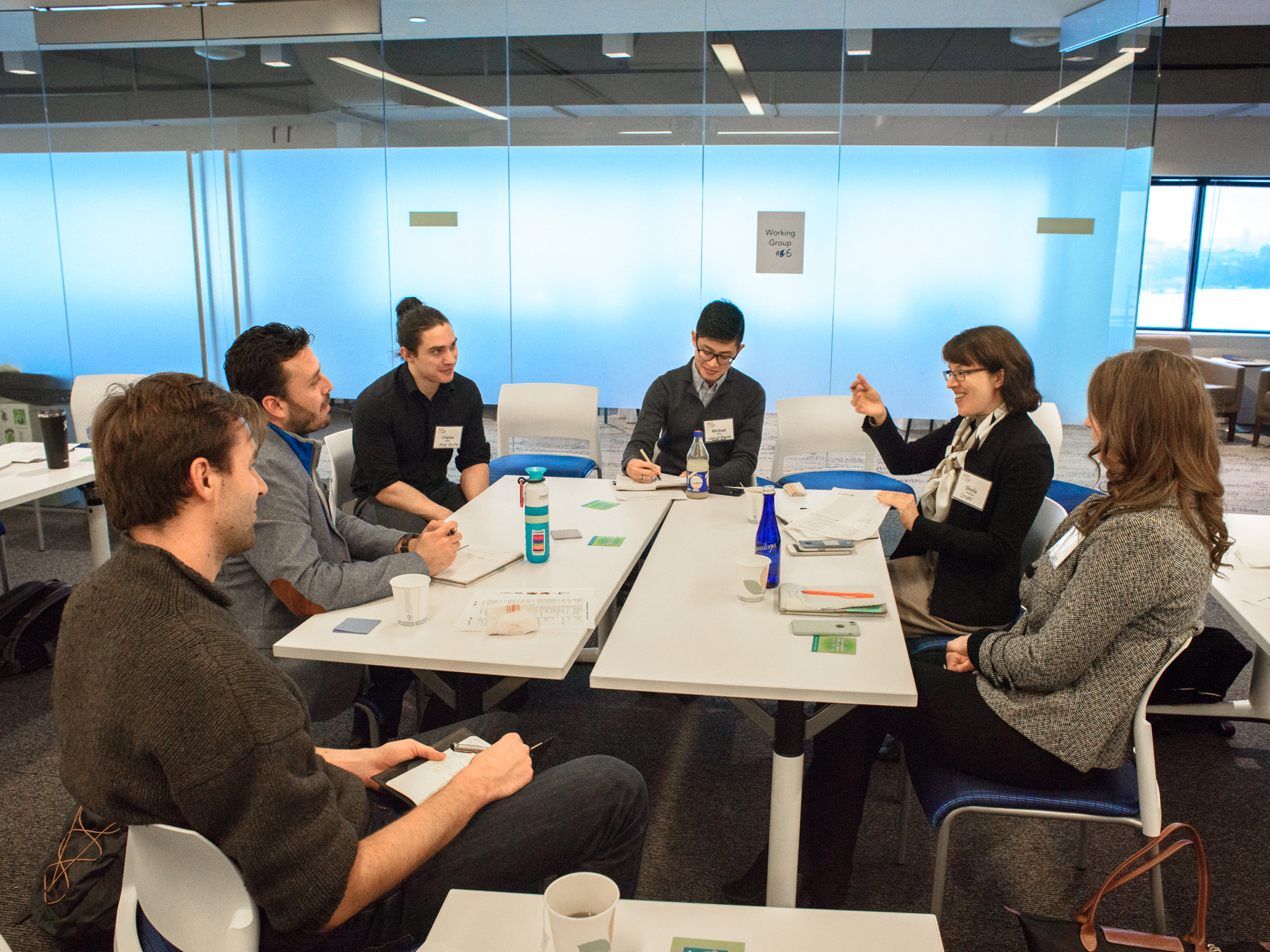Menu
ESI Journalism Fellowships
Supporting climate reporting in Americans’ backyards
Launched in spring 2021, the MIT Environmental Solutions Initiative’s Journalism Fellowship supports freelance or staff journalists associated with U.S. local/regional newsrooms in developing a high-impact news project that connects local perspectives, values and priorities with climate change science and solutions. The Fellowship is part of ESI’s program to engage Americans, states and communities as they face climate impacts, solutions and an emerging low-carbon economy.
Fellowships provide scientific, design and financial support to outstanding journalists in support of longform or serial local reporting that opens conversations about climate change solutions and impacts. Read our MIT ESI Journalism Fellowship Impact Report 2021 to learn about the accomplishments of the first year of this fellowship program.
Now accepting applications for our 2024 cohort
We are now accepting applications until April 28 for our 2024 cohort of MIT Environmental Solutions Journalism Fellows.
APPLY HERE
Meet our 2023 Fellows

Micah Drew
Kalispell, MT: The Flathead Beacon
Micah Drew covers local government, the environment and athletics for The Flathead Beacon in Northwest Montana. Micah earned his bachelor’s degree in journalism from the University of Montana, a master’s in biomechanics and kinesiology from Boise State University and previously reported for weekly newspapers in Idaho and Montana. When not in the newsroom, Micah is routinely found running on alpine trails in Glacier National Park. Since 2007, the Flathead Beacon has been devoted to delivering free public-service journalism and commentary throughout Northwest Montana. Collaborating newsroom members include Tristan Scott, who has spent 15+ years reporting on Montana’s environmental issues, and Denali Sagner, a recent University of Pennsylvania graduate.
Fellowship Project: An eight-part series in The Flathead Beacon: “Montana’s Climate Change Lawsuit”

Joan Meiners
Phoenix, AZ: The Arizona Republic
Joan Meiners is the climate news and storytelling reporter at The Arizona Republic. With a background in science writing and a Ph.D. in Ecology, she publishes a weekly story aimed at helping readers understand how climate change is altering life in the southwest and what we can do about it. She previously covered water insecurity in southwestern Utah with The St. George Spectrum through Report for America and worked on an investigation into the injustices of petrochemical pollution in Louisiana’s Cancer Alley with ProPublica’s Local Reporting Network, The Times-Picayune and The New Orleans Advocate. She lives in Phoenix.
Fellowship Project: A five-part series in The Arizona Republic on climate and housing. Published pieces include: “As Arizona builds to solve a housing crisis, will its homes withstand future heat extremes?”, “How is your Arizona city using building codes to combat climate and housing crises? Check our map.” and “More homes mean more heat. Can new building codes help save metro Phoenix from disaster?”

Annie Ropeik
Portland, ME: The Maine Monitor
Annie Ropeik is a freelance journalist based in Portland, Maine, where she reports on climate change, energy and environmental issues for The Maine Monitor and other outlets. She is a board member with the Society of Environmental Journalists and assistant director of the Mississippi River Basin Ag & Water Desk, a reporting collaborative. Originally from Silver Spring, Maryland, Annie studied classics at Boston University and spent the first decade of her career as an award-winning reporter and host for NPR stations in Alaska, Delaware, Indiana and New Hampshire.
Fellowship Project: A five-part series in the Maine Monitor: “Hooked on Heating Oil,” and “Making Maine’s next generation of housing fossil-free—and affordable” in Energy News Network

Mike Tony
Charleston, WV: The Charleston Gazette-Mail
Mike Tony is The Charleston Gazette-Mail’s energy and environment reporter. He has written extensively about how West Virginia’s topographic and political landscapes make its residents vulnerable to climate impacts. Previously, he reported for The Uniontown Herald-Standard in southwestern Pennsylvania, his hometown newspaper. He is a graduate of the University of Pennsylvania.
Fellowship Project: A four-part series in The Charleston Gazette-Mail:”‘We have to move on’: WV leaders pushing state flood risk upward by favoring resource extraction over climate action,””‘More intense, more water’: West Virginians call for greater flood protection amid climate concerns from extraction projects,” “‘Focus on the solutions’: Climate change communication looms large as WV faces flooded future,””Unfunded, uninsured and ignored: Experts urge support for flood protection solutions amid mounting disaster costs”

Ryan Van Velzer
Louisville, KY: Louisville Public Media
Ryan Van Velzer, Louisville Public Media’s Energy & Environment reporter, is dedicated to covering climate change and environmental issues across Kentucky. Ryan graduated with a bachelor’s degree in journalism from the Walter Cronkite School of Journalism at Arizona State University and has more than a decade of experience in the industry. He has worked for The Arizona Republic, The Associated Press, The South Florida Sun Sentinel and as a travel reporter in Central America and Southeast Asia. He has won numerous awards including regional Edward R. Murrow awards, Associated Press Broadcasters awards and Society of Professional Journalists Louisville Pro Chapter awards.
Fellowship Project: A four-part series in Louisville Public Media: “Coal’s Dying Light”
Past Fellows
Learn about our 2021 class of Journalism Fellows and their reporting projects.
Fellowship Advisors
Deborah Blum, Director, Knight Science Journalism Program, MIT
Prof. Jim Paradis, Robert M. Metcalfe Professor of Writing and Comparative Media Studies, MIT
Research Collaborators
Dr. Adam Schlosser, Senior Research Scientist and Deputy Director for Science Research, MIT Joint Program on the Science and Policy of Global Change
Joshua Hodge, Executive Director, MIT Center for Energy and Environmental Policy Research
Contact
Laur Hesse Fisher, Program Director, MIT Environmental Solutions Initiative




















